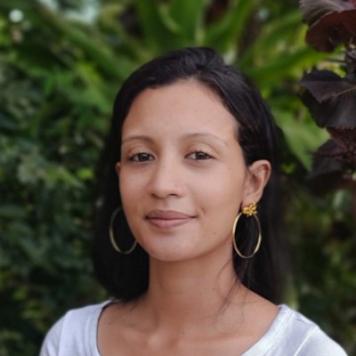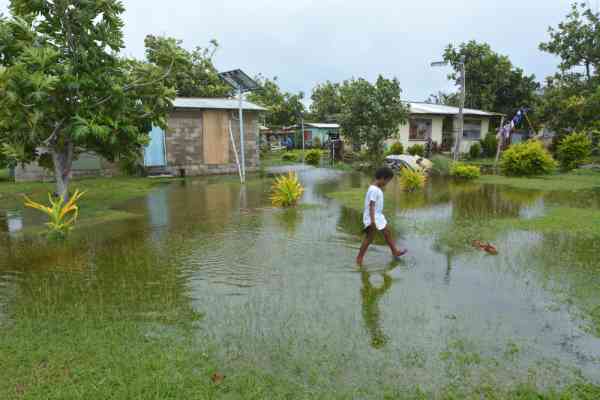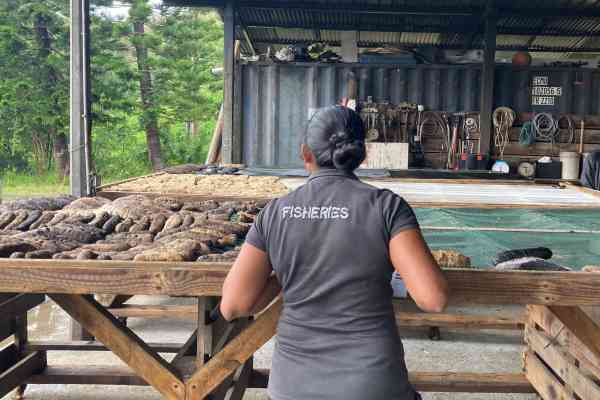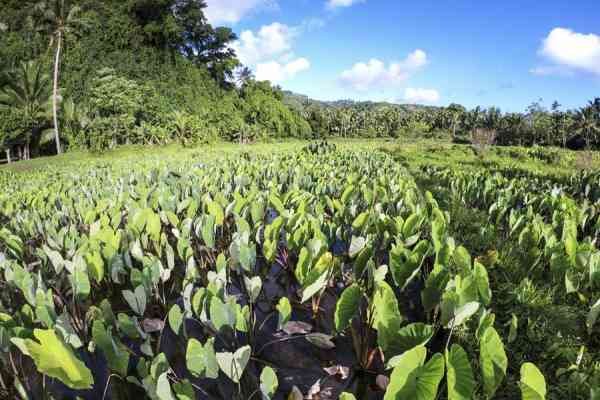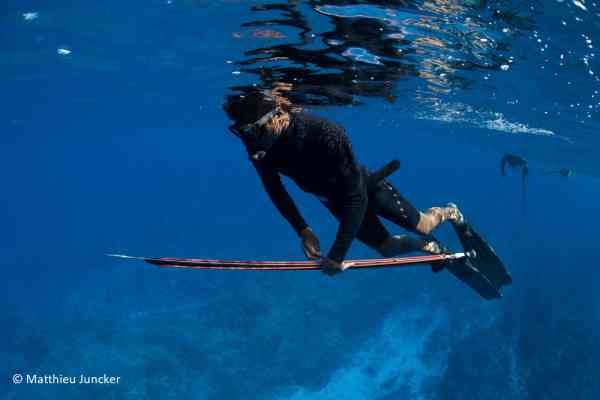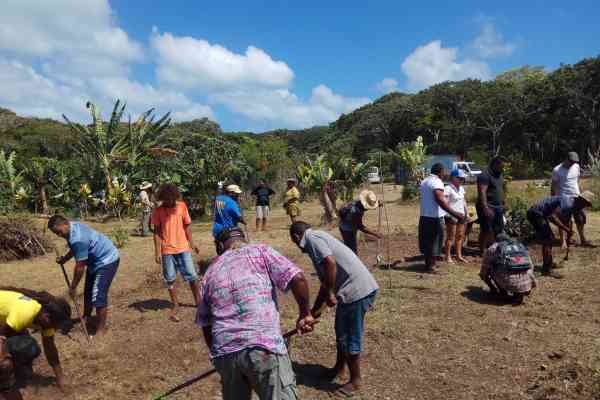By 2050, 60% more food than today will need to be produced to feed a growing population from the available land area worldwide. This must be done in a way that does not harm the soil, water, biodiversity, ecosystem services, or the climate upon which human wellbeing and development depend. However, climate change consequences may significantly impact agricultural productivity.
In Oceania, PICTs are already experiencing severe impacts of climate events as evidenced by cyclone damage, inundation, erosion and other coastal hazards. Moreover, many low lying islands are made of compactedcoral and shell debris. . They are generally nutrient-poor and suffer from long periods of drought and fragile water reserves, which jeopardises the implementation of sustainable agriculture.
This situation creates significant challenges for local farmers. Within islands where agriculture must develop in a hostile environment, the absence of fresh vegetables and fruits leads to health problems. Pacific islanders face childhood micronutrient deficiencies, accompanied by a burgeoning increase in adult obesity, diabetes and heart disease.
Internationally recognised for its expertise and know-how, the Pacific Community (SPC) facilitates knowledge exchange and provides evidence-based research to support climate action. Through SPC’s PROTEGE project, the organisation carried out a series of activities in New Caledonia, French Polynesia and Wallis and Futuna to support a transition to agroecological production, which includes ecological processes applied to agricultural production systems.
In 2021, a network of agroecological demonstration farms was implemented between these territories to act as learning centres for the best organic and agroecological production methods, focusing on enhanced biodiversity. Through capacity building trainings and on-farm experimentation, key stakeholders were provided with innovative solutions to strengthen the resilience of agricultural systems.
In New Caledonia, French Polynesia and Wallis and Futuna, 15 agricultural plots are testing agroforestry principles. In the Tuamotu low-lying coral atolls in French Polynesia, where the layer exploitable by the roots is shallow, the agroforestry system allows better water retention and better soil fertility thanks to an increased amount of organic matter. In addition, increased biodiversity in gardens brings higher profitability. So far, farmers from two islands (Rangiroa and Fakarava), are involved in these pilot projects. In Wallis and Futuna, a similar project is currently being implemented in six agricultural plots.
Considering the variety of pilot projects implemented in the region to tackle climate adaptation challenges, agroecology demonstration farms are a key tool to support biodiversity and contribute to the food and nutritional security of the population. By exchanging experience and knowledge, farmers are given the opportunity to reinforce their resilience towards climate change.
Pacific agriculture must tackle the challenge of supplying the increasing demand for food when soils are damaged or nutrient-deficient. Low-lying coral atoll countries must get acquainted with how farmers make decisions and adapt to environmental conditions by studying their adaptation strategies.
Find out more about the agriculture challenges being addressed in the Resilience broadcast (French only – Broadcast #6): https://www.youtube.com/watch?v=tduxbyJTi_4
About PROTEGE
PROTEGE (“Pacific Territories Regional Project for Sustainable Ecosystem Management” or “protect” in French) is an initiative designed to promote sustainable and climate-change-resilient economic development in European Pacific overseas countries and territories (OCTs) by emphasising biodiversity and renewable resources. Implemented by the Pacific Community (SPC) and the Secretariat of the Pacific Regional Environment Programme (SPREP), PROTEGE is a regional cooperation project that supports the public policies of the four Pacific OCT: New Caledonia, French Polynesia, Wallis and Futuna and Pitcairn.
About Resilience broadcast
Resilience is a 26-minute programme that highlights the actions taken by women and men in Polynesia, New Caledonia and Wallis and Futuna to enhance climate adaptation and mitigation. This programme is produced with the financial support of the European Union. The contents are the sole responsibility of the Pacific Community and do not necessarily reflect the views of the European Union.
